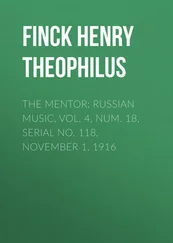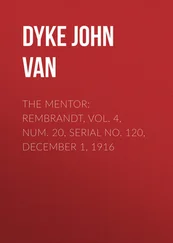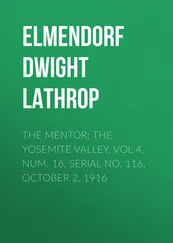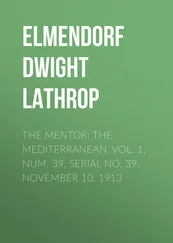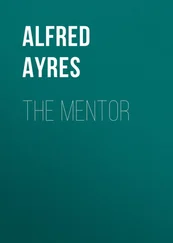Sebastian Stuart - The Mentor
Здесь есть возможность читать онлайн «Sebastian Stuart - The Mentor» весь текст электронной книги совершенно бесплатно (целиком полную версию без сокращений). В некоторых случаях можно слушать аудио, скачать через торрент в формате fb2 и присутствует краткое содержание. Жанр: Криминальный детектив, на английском языке. Описание произведения, (предисловие) а так же отзывы посетителей доступны на портале библиотеки ЛибКат.
- Название:The Mentor
- Автор:
- Жанр:
- Год:неизвестен
- ISBN:нет данных
- Рейтинг книги:3 / 5. Голосов: 1
-
Избранное:Добавить в избранное
- Отзывы:
-
Ваша оценка:
- 60
- 1
- 2
- 3
- 4
- 5
The Mentor: краткое содержание, описание и аннотация
Предлагаем к чтению аннотацию, описание, краткое содержание или предисловие (зависит от того, что написал сам автор книги «The Mentor»). Если вы не нашли необходимую информацию о книге — напишите в комментариях, мы постараемся отыскать её.
The Mentor — читать онлайн бесплатно полную книгу (весь текст) целиком
Ниже представлен текст книги, разбитый по страницам. Система сохранения места последней прочитанной страницы, позволяет с удобством читать онлайн бесплатно книгу «The Mentor», без необходимости каждый раз заново искать на чём Вы остановились. Поставьте закладку, и сможете в любой момент перейти на страницу, на которой закончили чтение.
Интервал:
Закладка:
There’s no shade in the bleak little plaza and his heart is pounding in his chest and his mouth is parched. There’s a man dressed like a clown handing out flyers, he has Bozo hair and a red plastic nose. He turns and gives Charles a grotesque smile. Charles looks away. Sitting on a bench across from him is a young woman reading a book. Charles squints to make out the title: Jane Eyre. The girl is oblivious to the world, her lips parted; she looks a little like Emma, with a wide brow, large eyes, and that intense concentration. She reaches up and brushes a lock of hair from her face- climbing out of the boat, their slow silent walk across the shore, his foot on the weathered gray step, a cold breeze on the back of his neck…
Charles shudders and stands up. People stream by him as if he isn’t there. He walks to a pay phone on the corner and dials Emma’s number. There’s a lot of traffic and he has a hard time hearing the ringing over the rumble and honking. When Emma finally picks up, she sounds half asleep.
“It’s me,” he says.
“Where are you?”
“What are we doing, Emma?”
Charles looks out at the people rushing by. They’re so filled with purpose, as if it all mattered. Why are they all moving so quickly?
“Should you go away, Emma?”
“Go away?”
“Just leave New York. Today.”
A cab with its radio blaring stops at the light.
“I’m sorry, Charles, I can’t hear you.”
“Leave today.”
“I can’t hear you.”
The light changes and the cab speeds off.
“I don’t feel well, Emma.”
Charles thinks he might throw up. He needs water.
“You miss Portia.”
“Yes.”
Charles presses his cheek against the cool metal of the booth.
“I love you, Emma.”
There’s a long pause.
“Do you really?”
“Yes.”
“I’m so tired, Charles.”
“I have to get to the service.”
“Are you coming down here after?”
A well-dressed middle-aged woman stands nearby, waiting for the phone. Does she recognize him? Of course she does. Charles straightens up.
“Charles, are you there?”
“I’ll come down after the service.”
It’s getting late. He races east and then down Vanderbilt Avenue to the club. He goes into the men’s room and is shocked at how cheap and ridiculous the sunglasses look. He takes them off. His eyes are bloodshot. He takes a long drink of water, cupping his palm under the faucet.
The memorial service has already begun. He slips into the hall, a wood-paneled room with a vaulted ceiling. An old man is reading a Rilke poem. A murmur goes around the room as Charles makes his way up to a front pew. Who are all these people? What can they tell? He forces himself to take deep breaths. Why the hell do they have the heat on in this weather? He’s suffocating. His suit chafes and he has to piss. Why didn’t he piss when he was in the men’s room? And then he hears the old man say his name and he realizes everyone is waiting for him to go up and say something about Portia.
He gets up to walk to the front of the room- the splintering sound as the wood gives way and her body tumbles over backward, her mouth struggling to form words, her head banging on the rock, her body falling, falling. Listening, afraid to breathe. Should he go down there, down to the lake, make sure she’s dead?
He can’t raise his eyes from the lectern, doesn’t want to see the faces staring up at him. He has to say something. How long has he been standing here in silence? It doesn’t look right. They’re all waiting and the room is so still. Someone coughs and he looks up-a woman in the back row, a handkerchief to her mouth, vaguely familiar, her face filled not with suspicion but with sympathy, sympathy for his loss. He was closer to Portia than any of them. That’s what they’re all thinking. And they’re right.
“When I think of Portia,” he begins, “one memory above all others comes back to me. It was my first year at Dartmouth. I hated the place. All those rich kids. Of course I knew who Portia Damron was, but she didn’t teach freshmen. It was a Saturday night in the depths of January, and I was feeling pretty sorry for myself. I decided to drive over to the next town where there was a roadside bar that looked welcoming. The place was dark and nobody in there looked like they had a trust fund. I sat down and ordered a Scotch. Down at the far end of the bar I noticed Portia.”
Starting down the steps, the low gray sky… Hurry, faster, you never know when a hiker will show up, someone could be in the woods on the other side of the lake right now, someone could have seen the whole thing.
“She was deep in conversation with an old fella who looked as if he hadn’t drawn a sober breath in forty years. Oh, did I mention she was smoking?” There’s a ripple of warm laughter. Charles realizes his eyes are filled with tears; he isn’t crying, though; he isn’t going to cry. “Suddenly they both slapped bills down on the bar, climbed off their stools, and walked over to a pinball machine. She dropped in a quarter and began to play.”
At the bottom-the gray pebbles, and her body, crumpled and twisted, all broken and tiny, like a little broken doll. Stop looking, get away, think think think-make sure she’s dead, check the body, make sure she’s dead.
“Well, she worked that pinball machine like she was born behind it, twisting and turning and pumping, racking up points. Pretty soon a crowd started to gather, cheering her on. Before you knew it, every last soul in the bar, myself included, was down there. Portia was fierce, pure concentration. Then lights were going off and bells were ringing-she’d broken the all-time record score. We were all screaming and laughing, the place went wild. And Portia? She just kept on playing. But a great big smile broke across her face. That’s how I’ll always remember her-on that January night, playing pinball, passionate, engaged, alive.”
The low gray sky, the lake gently lapping-go look, go look at her body. Her eyes are open. But she’s dead, isn’t she? One step closer-then he hears it, that wet harsh rattling somewhere in her throat, in her body. Then her eyes move. They look at him. And then he turns, runs up the steps, runs from those eyes-that look-falls twice on the slippery splintered wood. Into the car and he’s gone. Gone. It’s over. But why does he still hear that sound? Why does he still see her eyes, looking at him?
And now Charles is surrounded by people, people telling him how touched they were by his words and offering condolences and sharing their memories of Portia and boasting how they’ve followed his career all these years and asking about his next book. He tells them all it’s going to be dedicated to Portia. At one point his classmate Dan Leber, the prominent psychiatrist, pulls him aside.
“That was very moving, Charles.”
“Thank you.”
“She was an amazing teacher. I still have my annotated copy of Crime and Punishment. Reread it every five years. Listen, Charles, how’s the situation with that young woman you called me about, your secretary?”
From the way he says the words, Charles realizes Leber knows they’re having an affair. That’s all right; men have affairs all the time.
“It’s not improving.”
“Well, if you want me to see her, just call.”
“I will, Dan. Thank you.”
Charles has several glasses of wine and at some point begins to relax. He did it, he got through, no one knows, no one will ever know. All around him, people are trading stories and jokes about Portia and their younger selves, their days in the hills of New Hampshire. Many of them have gone on to successful careers, but none as successful as his. Finally people begin to leave, back to their jobs and their lives. Charles lingers, is one of the last to go. Someone comes up to him, a woman he barely recognizes. A secretary in the English Department?
Читать дальшеИнтервал:
Закладка:
Похожие книги на «The Mentor»
Представляем Вашему вниманию похожие книги на «The Mentor» списком для выбора. Мы отобрали схожую по названию и смыслу литературу в надежде предоставить читателям больше вариантов отыскать новые, интересные, ещё непрочитанные произведения.
Обсуждение, отзывы о книге «The Mentor» и просто собственные мнения читателей. Оставьте ваши комментарии, напишите, что Вы думаете о произведении, его смысле или главных героях. Укажите что конкретно понравилось, а что нет, и почему Вы так считаете.





